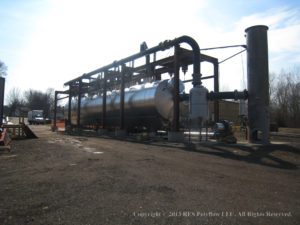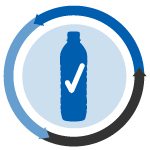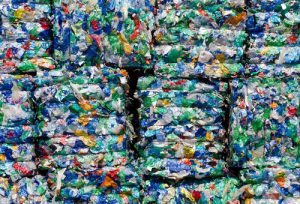 Florida lawmakers vote to remove roadblocks for plastics conversion efforts, and Envision Plastics announces it will source millions of pounds of material from regions prone to generating ocean plastics.
Florida lawmakers vote to remove roadblocks for plastics conversion efforts, and Envision Plastics announces it will source millions of pounds of material from regions prone to generating ocean plastics.

 Florida lawmakers vote to remove roadblocks for plastics conversion efforts, and Envision Plastics announces it will source millions of pounds of material from regions prone to generating ocean plastics.
Florida lawmakers vote to remove roadblocks for plastics conversion efforts, and Envision Plastics announces it will source millions of pounds of material from regions prone to generating ocean plastics.
 Equipment companies release innovative optical sortation technologies, and the Association of Plastic Recyclers recognizes research improving recyclability.
Equipment companies release innovative optical sortation technologies, and the Association of Plastic Recyclers recognizes research improving recyclability.
 Packaging producers should choose clear or translucent PET containers because opaque and colored ones inhibit recycling of the material into higher-value applications.
Packaging producers should choose clear or translucent PET containers because opaque and colored ones inhibit recycling of the material into higher-value applications.
 A small Midwest town is slated to welcome a plastics-to-fuel facility converting up to 100,000 tons of mixed plastics per year into gasoline and diesel fuels.
A small Midwest town is slated to welcome a plastics-to-fuel facility converting up to 100,000 tons of mixed plastics per year into gasoline and diesel fuels.
 South Africa recycled more total plastic in 2015 than the year before, but the country’s plastics diversion rate dropped and plastics recycling companies struggled.
South Africa recycled more total plastic in 2015 than the year before, but the country’s plastics diversion rate dropped and plastics recycling companies struggled.
 After banning imports of plastic scrap earlier this year, the Indian government has decided to allow exceptions under specific circumstances.
After banning imports of plastic scrap earlier this year, the Indian government has decided to allow exceptions under specific circumstances.
 A European Union panel approved a pair of proposals that bring recovered material into plastic food and beverage packaging.
A European Union panel approved a pair of proposals that bring recovered material into plastic food and beverage packaging.
 Shareholders of Target and other giant brands will likely decide whether they want the businesses to stop using expanded polystyrene.
Shareholders of Target and other giant brands will likely decide whether they want the businesses to stop using expanded polystyrene.
 Researchers have launched a project to measure the depth of demand for post-consumer recycled plastics in the U.S. and Canada. Continue Reading
Researchers have launched a project to measure the depth of demand for post-consumer recycled plastics in the U.S. and Canada. Continue Reading
After months of lobbying against a potential ban on expanded polystyrene (EPS) foam in New York City, EPS manufacturer Dart Container has offered the city a deal: Include foam in the city’s curbside pick-up program and the company will buy it — and recycle it — on its own.
